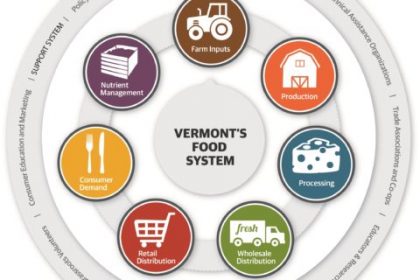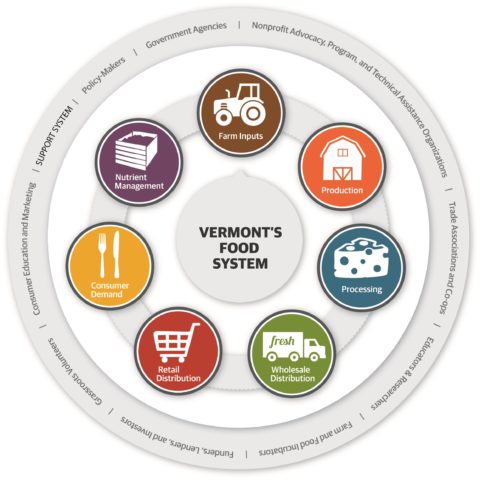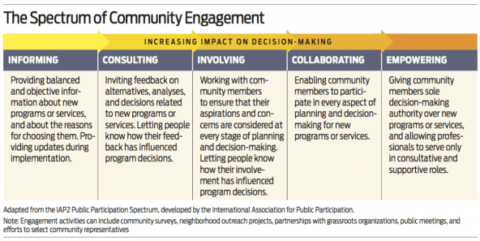
Guest post by Curtis Ogden of the Interaction Institute for Social Change
“Nothing about us without us is for us.”
South African slogan
“What is missing from the policy analyst’s tool kit – and from the set of accepted, well-developed theories of human organization – is an adequately specified theory of collective action whereby a group of principals can organize themselves voluntarily to retain the residuals of their own efforts.”
Elinor Ostrom (1996) Governing the Commons
“…there’s no real evidence that one can become expert in something as broad as ‘decision making’ or ‘policy’ or ‘strategy.’ Auto repair, piloting, skiing, perhaps even management: these are skills that yield to application, hard work, and native talent. But forecasting an uncertain future and deciding the best course of action in the face of that future are much less likely to do so. And much of what we’ve seen so far suggests that a large group of diverse individuals will come up with better and more robust forecasts and make more intelligent decisions than even the most skilled ‘decision maker.’”
James Surowiecki, The Wisdom of Crowds
Last week I had the opportunity to facilitate a workshop for one of the sub-networks of the Vermont Farm to Plate Network focused on food access (including food justice and racial equity). Farm to Plate is moving into a second decade of work and looking to refresh its strategic work and structure (version 2.0). As part of this move, various members are interested in how they can engage others more robustly and/or responsibly in their work, including those who are negatively impacted by the current system (those living with hunger and in poverty, struggling farmers, farm workers, indigenous people, etc.). The workshop was designed around some core IISC collaborative frameworks, which participants applied to their work in pairs and small groups, and it also elicited different participatory methods that those in the room were already using or aware of.
One of the operating assumptions in the workshop was that engagement and participation can and should look different in different situations, and that more is not necessarily better. Rather, it is important to get clear on the aims of an initiative, carefully consider who the key stakeholders are, weigh various factors (time, complexity, readiness, power dynamics, etc.) and think about timing and different phases of the work. Doing this kind of due diligence can help to clarify when and where on a spectrum of engagement options different individuals and groups might fall (see below for some examples).
For the last segment of the workshop, we explored a variety of participatory models and methods, and here is some of what came up (specifically considering the context of Vermont food systems work).
Organizational/Network Models:
- Rural Vermont (community organizing, sociocracy as a form of governance)
- Migrant Justice (community organizing, Milk With Dignity Campaign, sociocracy as a form of governance)
- Vermont Farm to Plate (innovative network structure)
- Vermont Farm to School (robust youth engagement)
- Building a Local Economy (local engagement around climate and economic inequality)
- Vermont Hunger Councils (collaborative forums in different parts of the state)
- Coalition to End Hunger in Western Massachusetts (collaborative system change structure and process, including community forums) –
- Food Policy Councils (local forums for food issues and platforms for coordinated action). Related, here is an article on food policy councils as a new form of equitable governance.
Tools, Techniques, Roles:
- Front Porch Forum (free on-line community building service)
- World Café (large group engagement method)
- Open Space Technology (large group engagement method)
- Photo voice (engagement method)
- Social media – Twitter, Facebook, etc.
- Direct messaging/texting
- Network weaving (leadership role to strengthen ties, trust, and flows)
- Food Solutions New England Ambassadors (equity focused network weavers)
Governance/Decision-Making:
- New England Grassroots Environment Fund (participatory grant-making)
- Consent-based governance (from Circle Forward)
- Sociocracy (shared governance and decision-making approach)
- On-line decision-making tools – Loomio, Athena Bridge
Participatory Planning and Assessment Approaches:
- Community Heart and Soul (participatory planning approach from the Vermont-based Orton Family Foundation)
- Whole Measures (participatory values-based planning and measurement framework from the Vermont-based Center for Whole Communities). Here is a link to the framework for food systems work specifically)
- The Spectrum on Community Engagement to Ownership (resource from Movement Strategy Center; also see other great resources from MSC at this link)
- Community Planning Toolkit (resource including a variety of engagement methods)
Of course there are many others out there. Please feel free to suggest additional models, examples, techniques and tools!






